Aligning Insurance Needs With Your Industry
Matching business insurance coverages with your industry and the size of your business is crucial to ensure you have adequate protection without overpaying for unnecessary coverage.
1. Identify Industry-Specific Risks
- Research Common Risks: Understand the typical risks associated with your industry. For example, a construction business faces different risks than a retail store.
- Regulatory Requirements: Ensure you comply with any industry-specific insurance requirements mandated by law or regulatory bodies.
2. Assess Your Business Size and Structure
- Number of Employees: Larger businesses with more employees may need more extensive workers' compensation and employment practices liability insurance.
- Revenue and Assets: Higher revenue and valuable assets may require higher coverage limits to protect against significant financial losses.
- Physical Locations: Multiple locations or larger premises may need more comprehensive property and general liability coverage.
3. Evaluate Your Operations
- On-Site vs. Off-Site Work: Businesses that operate off-site, such as contractors, may need additional coverage for property damage and liability at client locations.
- Inventory and Equipment: Assess the value of your inventory and equipment to determine the necessary coverage for property insurance and inland marine insurance (for items in transit).
4. Consider Your Business Activities
- Professional Services: If your business provides professional advice or services, consider professional liability insurance (Errors and Omissions).
- Product Sales: If you manufacture or sell products, product liability insurance is essential to cover claims related to product defects or injuries.
5. Analyze Historical Claims Data
- Review Past Claims: Look at previous claims to identify common risks and areas where additional coverage might be needed.
- Risk Patterns: Understanding patterns in claims can help you prioritize certain coverages over others.
6. Consult with an Insurance Agent
- Expert Advice: An experienced insurance agent can provide insights into the specific needs of your industry and help you tailor a policy that fits your business size and operations.
- Customized Solutions: Agents can offer customized insurance packages that combine various coverages to meet your unique needs.
7. Compare Multiple Quotes
- Get Multiple Quotes: Obtain quotes from different insurance carriers to compare coverage options and prices.
- Evaluate Coverage Details: Don’t just look at the price; compare the coverage limits, exclusions, and additional benefits offered by different policies.
8. Regularly Review and Update Your Policies
- Annual Reviews: Conduct annual reviews of your insurance policies to ensure they still meet your business needs as it grows or changes.
- Adjust Coverage: Update your coverage limits and types of insurance as your business expands, adds new services, or changes its operations.
9. Implement Risk Management Practices
- Safety Programs: Invest in workplace safety and training programs to reduce the likelihood of claims.
- Security Measures: Enhance security measures to protect against theft, vandalism, and cyber threats.
10. Consider Bundling Policies
- Business Owner’s Policy (BOP): For small to medium-sized businesses, a BOP can bundle general liability, property insurance, and business interruption insurance at a lower cost than purchasing them separately.
- Package Policies: Larger businesses may benefit from customized package policies that combine various coverages tailored to their specific needs.
Industry Examples
Car Dealership
Scenario: You own a car dealership that sells new and/or used vehicles, offers financing options, and has an on-site service center for repairs and maintenance.
Golf Course
Scenario: You own a golf course that includes a clubhouse, pro shop, restaurant, and offers golf lessons and equipment rentals.



